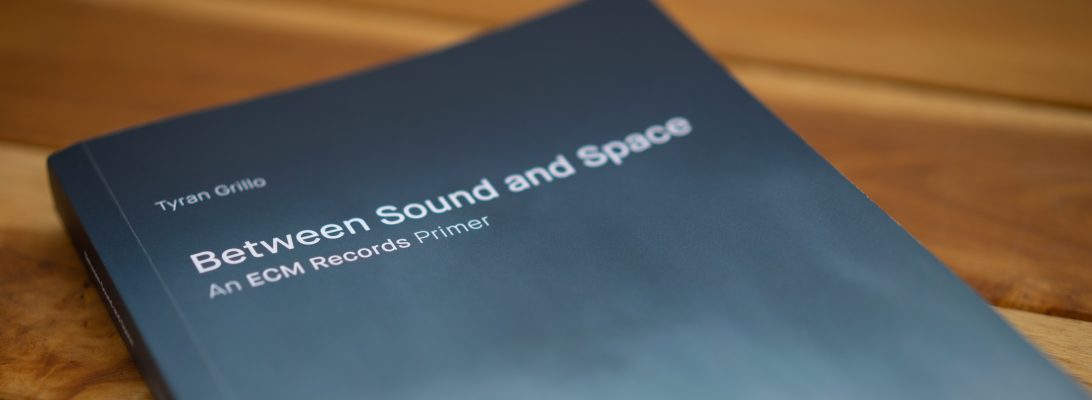Keith Jarrett
Paris/London – Testament
Keith Jarrett piano
Recorded in concert
November 26, 2008 at Salle Pleyel, Paris
December 1, 2008 at Royal Festival Hall, London
Producer: Keith Jarrett
Engineer: Martin Pearson
Executive producer: Manfred Eicher
“Communication is all. Being is all.”
–Keith Jarrett
Since the release of his endlessly influential live record The Köln Concert, Keith Jarrett has done more than any other at the keyboard to clarify improvisation’s infinite shape. When basking in the music that pours from his fingertips, it’s easy to wax poetically from one’s armchair about the effortless brilliance with which he seems to play. Yet Jarrett wants us to know that the process is not all intuition, for often—as is true of the concerts documented here—the physical and emotional challenges are intense, unrelenting. In his liner notes, he lays out the taxing nature of his efforts, saying, “It is NOT natural to sit at a piano, bring no material, clear your mind completely of musical ideas, and play something that is of lasting value and brand new.” He further mentions that the role of the audience has always been of the “utmost chemical importance” and is more apt to change the dynamics of the performance than any technical concerns, such as those that permeate the lore of Köln. Whether it’s a concert hall, a microphone, or the ether itself, every adlib needs an ear.
On November 26, 2008, Jarrett put this theory into practice when he took the stage at Salle Pleyel in Paris for the first of two ad hoc solo concerts. Although a noticeably bipolar performance, it also draws many intersections of contact between extremes. Over a glorious 70 minutes of music in eight parts, Jarrett works an asana of fixation and letting go and touches hand to heart in sporadic gestures of deference. Like water set to boil but which is turned down at the last moment, it skirts the edge of conversion from liquid to gas. At some moments Jarrett’s spontaneous motifs funnel into a single dream of flight, realized in his unbridled feeling for thermals that only he can see. Such depth is palpable in Parts III and VIII, both of which make sweeping peace of untapped wisdom, now opened like a book to reveal an as-yet-unwritten past. With every shake of the snow globe, Jarrett seeks new patterns. Whether in the mournful procession of Part V or the jazzier syncopations of VI, we can feel a working-through that gnaws the edges of philosophy. The final section synthesizes what came before. At once elegiac and scintillating, it finishes with a deluge of ephemeral signifiers.
The London concert, recorded five days later, is clothed by even more intense variety. One can not only hear but feel the debates raging inside Jarrett, who with Part I renders the rib cage a ladder to radiance and catches an eddying wind in Part II, kicking up leaves and dry soil. In this concert, too, the sheer breadth of Jarrett’s sweep is staggering in a way rarely heard since the early concerts. From Part III to the concluding XII, every step of this journey flirts with optimism, though gnarled eyes mark the wood grain periodically along the way. Gospel progressions infuse spiritual longing with living resolution, fingers digging into every chord like hands into soil, while Parts VII and X vamp across vales of blues. In likeminded vein, Parts IV and VIII hark to the divine tracings of Köln in some of his most unmitigated playing since that fateful performance. Sparkling and transcendent, they cascade over themselves in a constant rebirthing process. This is what lies at the heart of his craft: a total oneness with the elements. It’s like discovering the inner workings of a clock you once believed ran on magic, only to realize that in those gears lies the deeper magic of the ingenuity that set them running.
No such program would be complete without some jazzier flashpoints, and these we get in Parts VI and XI, both of which feel like ballads lost from the American Songbook that have wandered into view after a long redemption. Though haggard, they convey perseverance through their melodies. Close to elegies but ultimately wishes fulfilled, they touch with a caress that feels like mountains and sky.
Most impressive about the Paris and London concerts is their scope. Jarrett’s hands wander independently of one another while also keeping at least an artery pulsing between them. Jarrett knows the piano like he knows his own voice; for him they are one and the same. He does not surrender to what he creates, for surrender implies an advantage of which to be taken. The beauty of it all is that one need listen only once to live off the memory for a lifetime.
(To hear samples of Paris/London – Testament, click here.)


